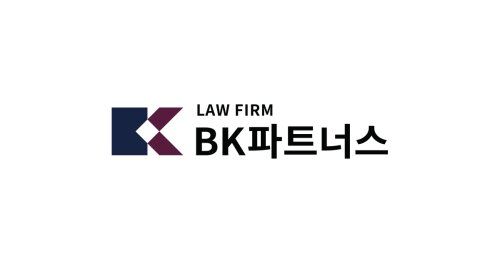Best State, Local, and Municipal Law Lawyers in South Korea
Share your needs with us, get contacted by law firms.
Free. Takes 2 min.
Or refine your search by selecting a city:
List of the best lawyers in South Korea
About State, Local, and Municipal Law in South Korea
State, local, and municipal law in South Korea encompasses the legal frameworks and regulations that govern the various administrative divisions in the country. South Korea is divided into several levels of government, including provinces, cities, and districts, each with its own set of rules and responsibilities. These laws address a wide range of issues, including governance, public services, zoning and land use, taxation, and local autonomy. With South Korea's evolving legal framework aimed at improving governance and management at every level, understanding these laws is crucial for both residents and businesses operating within the country.
Why You May Need a Lawyer
The complexities of state, local, and municipal law can lead to various situations where legal assistance is necessary. Common scenarios include:
- Disputes over local ordinances or regulations regarding property or business activities.
- Challenges with zoning restrictions or land use planning imposed by local governments.
- Issues related to municipal taxes or assessments.
- Need for legal advice when dealing with local government contracts or permits.
- Conflicts involving public services managed at the municipal level.
- Understanding changes or reforms in local governance or policies.
Having a lawyer who specializes in state, local, and municipal law is essential in effectively navigating these issues and ensuring compliance with local regulations.
Local Laws Overview
South Korea's local laws cover a variety of important areas, including, but not limited to, zoning and land use, environmental regulations, public safety, and local taxation. Key aspects include:
- Zoning and Land Use: Local governments have authority over land development, zoning regulations, and building permits, which can affect both residential and commercial properties.
- Environmental Regulations: Municipalities enforce environmental protection laws that might impact businesses and residents, including waste management and emissions controls.
- Public Safety: Local ordinances often focus on public health and safety issues, with regulations impacting areas such as noise control and community policing.
- Local Autonomy: The South Korean legal system emphasizes regional self-governance, allowing for variations in local policies and practices across different jurisdictions.
Frequently Asked Questions
What is the structure of local government in South Korea?
South Korea's local government structure is divided into upper-level and lower-level local governments. Upper-level includes special and metropolitan cities and provinces, while lower-level consists of city districts and counties.
How do zoning laws affect property owners?
Zoning laws dictate how land can be used, affecting construction, business operations, and property use. These laws vary by jurisdiction and property owners must comply with local regulations.
What should I do if I have a dispute over municipal taxes?
If you have a dispute over municipal taxes, consulting with a lawyer can help you understand your responsibilities and potential recourses within local taxation laws.
Are there specific regulations for businesses at municipal levels?
Yes, businesses must comply with municipal regulations related to licensing, environmental impact, and other local ordinances specific to their industry and location.
How can I access government services at the municipal level?
Many government services at the municipal level are accessible online through localized government portals, but availability and the process may vary depending on the specific service and region.
What is the role of local councils in South Korea?
Local councils in South Korea play a significant role in legislating local policies, budget allocation, and oversight of municipal administration.
How does a lawyer help with zoning issues?
A lawyer specializing in municipal law can provide insights into zoning law intricacies, represent you in negotiations with local authorities, or assist in legal challenges.
What resources are available for understanding local laws?
Resources include local government websites, legal aid organizations, and consulting with a lawyer who specializes in state, local, and municipal law.
Can local laws affect immigration regulations or residency status?
While local laws primarily govern municipal matters, changes in local ordinances could indirectly impact issues related to residency or temporary stay, requiring compliance with new regulations.
What is the process of appealing a local government decision?
The process usually involves submitting an appeal to a higher authority or administrative body, and it's advisable to do so with the assistance of a legal professional knowledgeable in South Korean administrative law.
Additional Resources
Several resources can be useful for individuals seeking information or assistance concerning state, local, and municipal law in South Korea:
- Local Government Offices: Direct access for queries and services.
- Korean Bar Association: Offers guidance on finding qualified legal assistance.
- Ministry of the Interior and Safety: Provides insights on local governmental regulations and policies.
- Online Legal Aid Platforms: For general advice and information on legal proceedings within municipal law areas.
Next Steps
If you require legal assistance with state, local, and municipal law issues in South Korea, consider the following steps:
- Identify the specific nature of your legal issue within the local laws and ordinances.
- Consult with a lawyer specializing in state, local, and municipal law to understand your legal standing and options.
- Prepare necessary documentation related to your legal issue, including any correspondence with local authorities.
- Follow legal advice and steps provided by your attorney to proceed with any negotiation, mediation, or legal action.
- Make use of online resources and government portals to enhance your understanding and compliance with local laws.
Lawzana helps you find the best lawyers and law firms in South Korea through a curated and pre-screened list of qualified legal professionals. Our platform offers rankings and detailed profiles of attorneys and law firms, allowing you to compare based on practice areas, including State, Local, and Municipal Law, experience, and client feedback.
Each profile includes a description of the firm's areas of practice, client reviews, team members and partners, year of establishment, spoken languages, office locations, contact information, social media presence, and any published articles or resources. Most firms on our platform speak English and are experienced in both local and international legal matters.
Get a quote from top-rated law firms in South Korea — quickly, securely, and without unnecessary hassle.
Disclaimer:
The information provided on this page is for general informational purposes only and does not constitute legal advice. While we strive to ensure the accuracy and relevance of the content, legal information may change over time, and interpretations of the law can vary. You should always consult with a qualified legal professional for advice specific to your situation.
We disclaim all liability for actions taken or not taken based on the content of this page. If you believe any information is incorrect or outdated, please contact us, and we will review and update it where appropriate.
Browse state, local, and municipal law law firms by city in South Korea
Refine your search by selecting a city.












